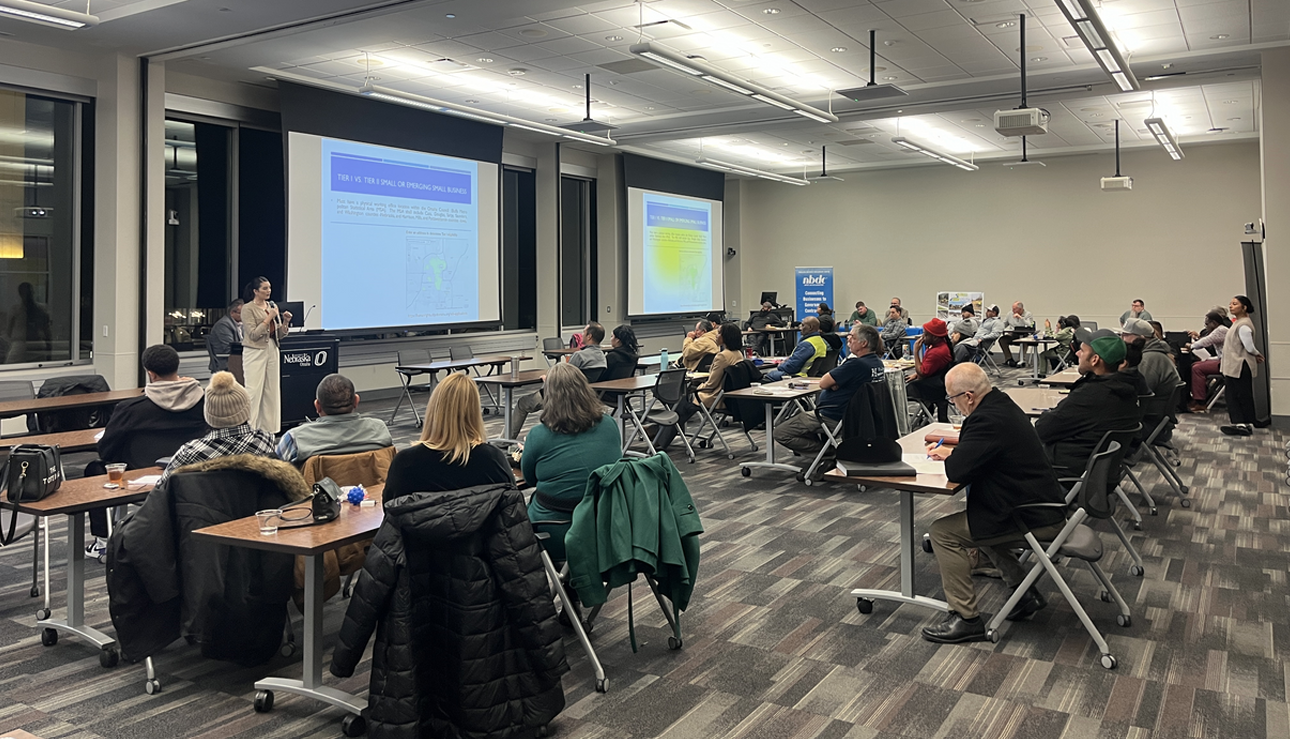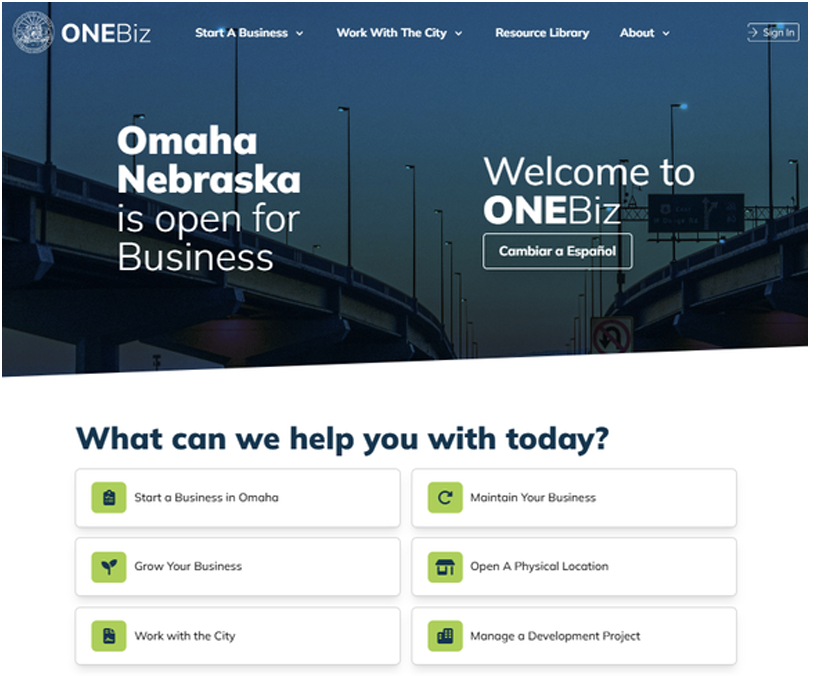Small and Emerging Business Program

HR&R organized the annual Doing Business with the City event, where contractors come and learn about opportunities to contract with the City of Omaha and the support mechanisms community partners offer.
The City of Omaha Small and Emerging Business (SEB) program provides an opportunity for new or developing businesses to jumpstart their earnings with City contracts. Certain City contracts are fully or partially designated for SEBs, giving those businesses an opportunity to grow. As of December 31, 2024, there were 180 companies authorized as small or emerging small businesses with the City of Omaha. 13.04% of City contracts in 2024 were awarded to SEBs ($32,489,947.65). This is a 33% increase from 2023, in which 7.10% of City contracts ($24,421,766.83) were awarded to SEBs.
During the last quarter of this year, HR&R piloted a new website called ONEBiz which supports entrepreneurs doing business in Omaha. ONEBiz hosts straightforward information for people who want to start or grow a company or develop in Omaha. Companies will submit SEB authorization applications through ONEBiz and maintain their records in one place. Stay tuned for a formal launch this year.
HR&R hosted the fifth annual “Doing Business with the City” event in December. This event brings together City departments and community partners to inform small businesses in construction, trades, engineering, and architecture about how to work with the City of Omaha. City departments discussed programming opportunities and upcoming projects where contractors and small businesses can participate. City representatives reviewed permits and licensing requirements to help attendees better prepare for future jobs. Community organizations shared the services available through their programs to support businesses with various needs.
Russell W. Falconer, owner of R.W. Engineering & Surveying, Inc. has been in the SEB program since 2010 and recently submitted his re-authorization application for another 3-year authorization with the program. He shared, "The program has put me in front of so many new clients that I normally wouldn't be exposed to. Once an opportunity presented itself, we would prove to new clients that our small business could meet and exceed all their needs. We would then build the relationship and the opportunities would grow. We have been in the program since 2010, and our business has grown seven-fold. I think the program is amazing and most definitely would recommend it to other small businesses.”
Economic Equity and Inclusion Plan Program
The Economic Equity and Inclusion Program (EEIP) exists to generate sustainable growth and opportunities in Omaha for SEBs, the local workforce and youth. Companies with construction contracts exceeding $650,000 and certain professional service contracts exceeding $150,000 with the City of Omaha produce an annual EEIP Plan and quarterly reports. EEIP plans must emphasize impacts in Tier 1 areas of Omaha and demonstrate SEB utilization, workforce development and youth engagement.
In 2024, HR&R started tracking and reporting key pieces of data in an effort to highlight impactful work happening through the EEIP. Contractors and consultants with active EEIP plans have been implementing initiatives that align with the program's objectives, fostering economic equity with a special focus in Tier I areas. Between September 1 and December 15, companies reported paying $5,083,773.39 to SEBs on City projects. Additionally, reports highlighted compensation to SEBs of $1,797,253.44 for non-City projects. These funds for non-City projects not only support the SEBs but also help build their capacity, providing valuable experience and opportunities for growth.
In the same period, companies reported 1,108.25 hours of youth mentoring, along with $26,470 in donations and sponsorships toward organizations and activities supporting youth engagement in the trades and STEM fields. Of this total, $12,270 went to organizations and industry-related activities in Tier I areas.
The City of Omaha offers a bid incentive for companies using apprenticeship hours. To benefit from the incentive, apprentices must complete 10% of labor hours on the project. From July 1 to December 15, four companies reported a total of 9,289.98 apprentice hours on City projects. Notably, all four companies surpassed the minimum requirement, reflecting the success of the apprenticeship incentive.
These efforts collectively advanced the program's objectives, strengthening economic equity and inclusion in Omaha.
ONEBiz, a tool to streamline the experience for companies doing business and developing in Omaha, will formally launch in early 2025.

